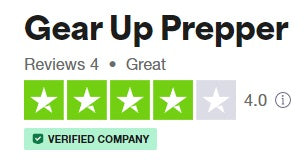Water scarcity and the lack of clean water are pressing issues affecting millions worldwide. As the global population grows and climate change alters weather patterns, ensuring access to clean water becomes increasingly challenging. Here are strategies for preserving and managing water resources during times of clean water shortages.
1. Water Conservation at Home
Household water conservation is crucial during clean water shortages. Simple yet effective measures can make a significant difference:
- Fix Leaks: Regularly inspect and repair any leaks in faucets, toilets, and pipes. A single drip can waste gallons of water over time.
- Low-Flow Fixtures: Install low-flow showerheads, faucets, and toilets to reduce water usage without compromising performance.
- Efficient Appliances: Use water-efficient appliances like dishwashers and washing machines. They consume less water while maintaining effectiveness.
- Mindful Usage: Turn off the tap while brushing your teeth, washing your hands, or doing dishes. Collect and reuse water for tasks such as watering plants or flushing toilets.
2. Rainwater Harvesting
Rainwater harvesting is a sustainable practice that involves collecting and storing rainwater for future use. This can be done through:
- Rain Barrels: Simple systems that collect rainwater from rooftops. The water can be used for irrigation, flushing toilets, and even washing clothes.
- Cisterns: Larger storage systems that can hold more water. These are particularly useful in areas with infrequent rainfall.
- Green Roofs: Roofs covered with vegetation that absorb rainwater, reduce runoff, and provide insulation.
3. Greywater Recycling
Greywater is wastewater from sinks, showers, and washing machines. With proper treatment, it can be reused for non-potable purposes such as:
- Irrigation: Greywater can be used to water gardens and landscapes. This reduces the need for clean water in gardening.
- Toilet Flushing: Reusing greywater for flushing toilets conserves a significant amount of clean water.
- Groundwater Recharge: Properly treated greywater can help replenish groundwater levels, contributing to overall water availability.
4. Community and Municipal Efforts
Communities and municipalities play a crucial role in water preservation during shortages. Effective strategies include:
- Public Awareness Campaigns: Educating the public about water conservation techniques and the importance of preserving water resources.
- Water Restrictions: Implementing regulations on water use, such as limiting lawn watering and car washing during droughts.
- Infrastructure Upgrades: Investing in infrastructure improvements to reduce water loss from leaks and enhance the efficiency of water delivery systems.
- Recycled Water Programs: Developing systems to treat and reuse wastewater for irrigation, industrial processes, and even drinking purposes after advanced treatment.
5. Agricultural Practices
Agriculture is a major consumer of water. Adopting water-efficient farming practices can help preserve water resources:
- Drip Irrigation: A highly efficient method that delivers water directly to the plant roots, minimizing evaporation and runoff.
- Soil Moisture Monitoring: Using sensors to monitor soil moisture levels and irrigating only when necessary.
- Crop Selection: Choosing drought-resistant crops that require less water.
- Mulching: Applying mulch to soil surfaces to reduce evaporation and maintain moisture levels.
6. Personal Water Storage
In times of clean water shortages, having a personal water storage plan is essential:
- Emergency Supplies: Keep an emergency supply of bottled water. Aim for at least one gallon per person per day for drinking and basic needs.
- Water Purification: Have water purification methods on hand, such as water filters, purification tablets, or portable UV purifiers. These can make untreated water safe to drink.
- Boiling: Boiling water is a simple and effective method to kill pathogens and make it safe for consumption.
Water preservation during clean water shortages requires a multi-faceted approach involving individuals, communities, governments, and international organizations. By adopting water-efficient practices, investing in infrastructure, and promoting sustainable policies, we can ensure that clean water remains available for future generations.






